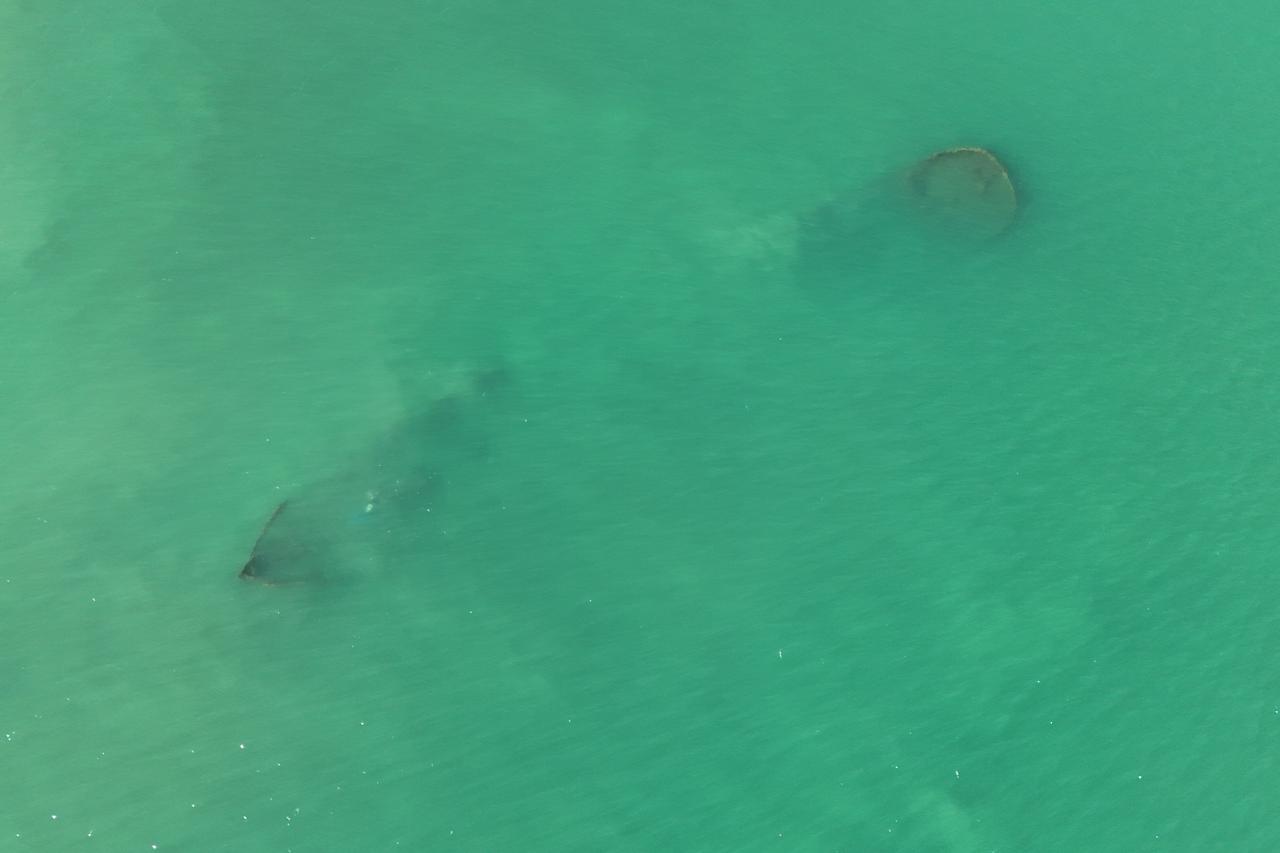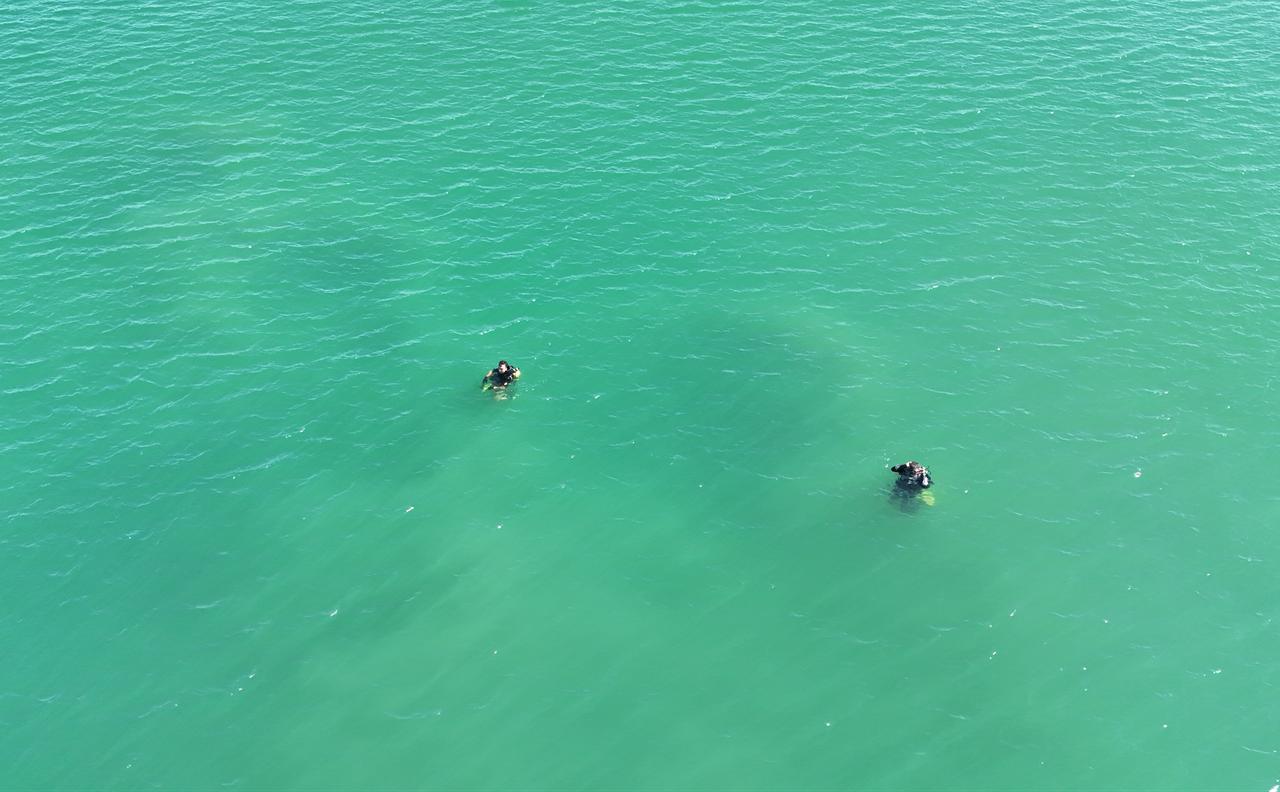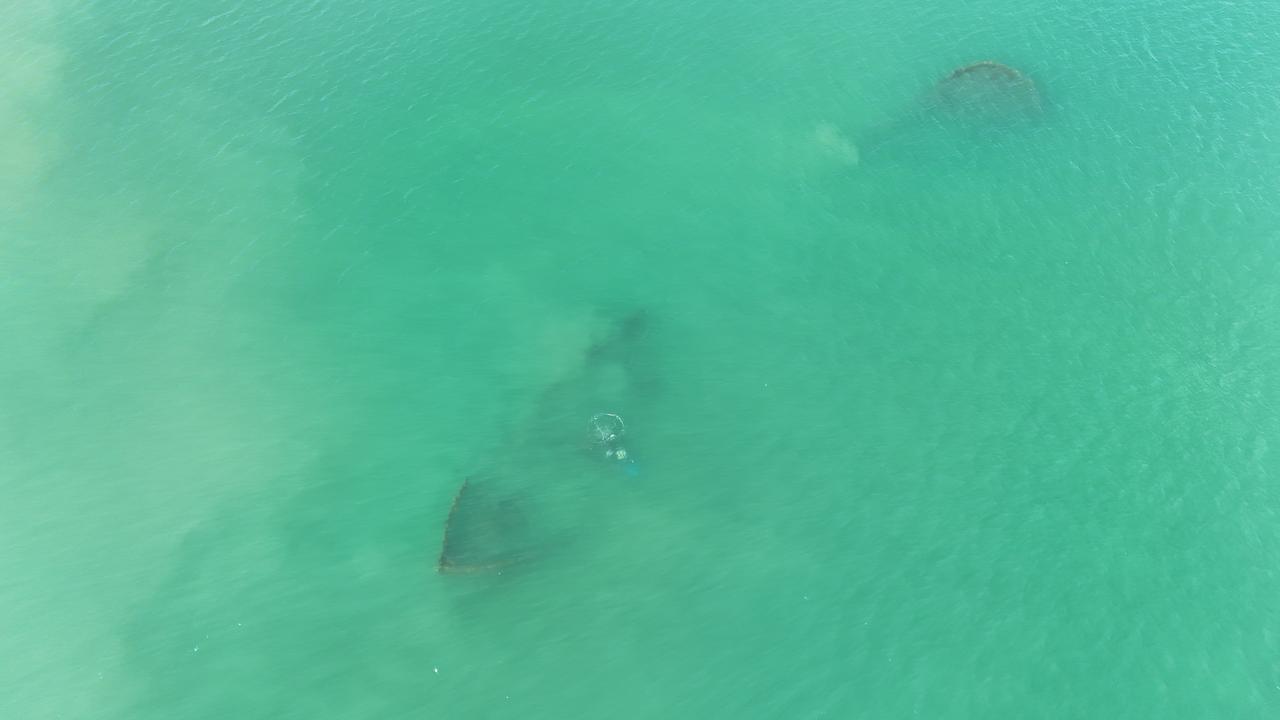
A team of divers has carried out an exploratory dive to the wreck of a Russian cargo ship that sank off the coast of Ordu in the Black Sea in 1933.

The wreck was first noticed recently by photographer Gokhan Kirca, who lives in Ordu’s Altinordu district. While flying a drone about 120 meters from the shoreline, he spotted remains beneath the water’s surface. After sharing the images on social media, the discovery drew wider attention.
Soon after, diving instructor Hakan Guney and four divers organized a dive to examine the site. They recorded underwater images of the wreck, confirming that it belonged to a Russian steamer that went down more than 90 years ago.

Local historian and writer Ibrahim Dizman explained that the vessel had been used by Russians for commercial purposes. On Nov. 30, 1933, it arrived in Ordu carrying kerosene, a widely used fuel at the time, when it sank during a severe storm.
Dizman added that some sources refer to the ship by the name “Tana.” According to accounts from the period, local residents rescued the crew, though one member lost his life. He noted that the ship’s masts remained visible above the water until the 1960s before it gradually sank deeper and disappeared from view.
Speaking after the dive, instructor Guney said the wreck lies very close to the shore. “Together with our friends, we carried out a dive and captured underwater footage. We expect the wreck to contribute to the development of underwater tourism in Ordu,” he remarked.
He described the ship as partly buried in sand, which reduced visibility. However, the divers estimated it to be around 3.5 meters wide and were able to see the cabin area. Parts of the wreck rest just 2.5 meters below the surface, with some sections only 30 centimeters from it. Guney added that the ship has become a habitat for fish and can even be spotted while swimming near the beach.
Kirca explained that he captured the wreck thanks to a tip from a friend engaged in paragliding near the coast. He said bringing attention back to an existing but forgotten wreck was personally rewarding.